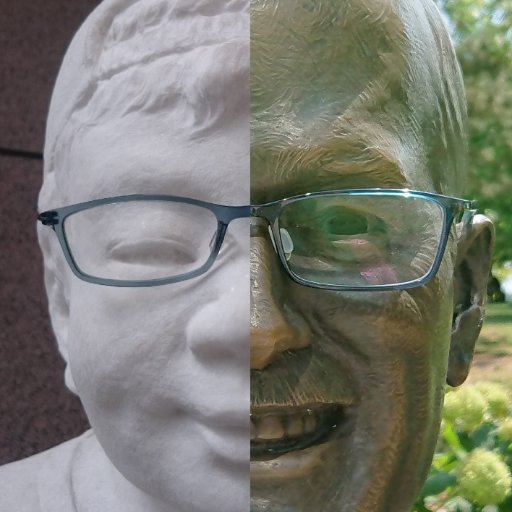結果
| 問題 | No.1705 Mode of long array |
| コンテスト | |
| ユーザー |
 n_vip n_vip
|
| 提出日時 | 2021-10-08 22:27:43 |
| 言語 | C++17 (gcc 15.2.0 + boost 1.89.0) |
| 結果 |
CE
(最新)
AC
(最初)
|
| 実行時間 | - |
| コード長 | 5,801 bytes |
| 記録 | |
| コンパイル時間 | 1,448 ms |
| コンパイル使用メモリ | 134,924 KB |
| 最終ジャッジ日時 | 2025-01-24 22:39:24 |
|
ジャッジサーバーID (参考情報) |
judge1 / judge4 |
(要ログイン)
コンパイルエラー時のメッセージ・ソースコードは、提出者また管理者しか表示できないようにしております。(リジャッジ後のコンパイルエラーは公開されます)
ただし、clay言語の場合は開発者のデバッグのため、公開されます。
ただし、clay言語の場合は開発者のデバッグのため、公開されます。
コンパイルメッセージ
main.cpp: In instantiation of ‘T read() [with T = std::tuple<int, int, long long int>]’:
main.cpp:67:96: required from ‘std::vector<_Tp> readV(int) [with T = std::tuple<int, int, long long int>]’
main.cpp:100:35: required from here
main.cpp:65:41: error: no match for ‘operator>>’ (operand types are ‘std::istream’ {aka ‘std::basic_istream<char>’} and ‘std::tuple<int, int, long long int>’)
65 | template<class T=ll> T read(){ T re; cin>>re; return re;}
| ~~~^~~~
In file included from /usr/include/c++/13/iostream:42,
from main.cpp:3:
/usr/include/c++/13/istream:325:7: note: candidate: ‘std::basic_istream<_CharT, _Traits>::__istream_type& std::basic_istream<_CharT, _Traits>::operator>>(void*&) [with _CharT = char; _Traits = std::char_traits<char>; __istream_type = std::basic_istream<char>]’
325 | operator>>(void*& __p)
| ^~~~~~~~
/usr/include/c++/13/istream:325:25: note: no known conversion for argument 1 from ‘std::tuple<int, int, long long int>’ to ‘void*&’
325 | operator>>(void*& __p)
| ~~~~~~~^~~
/usr/include/c++/13/istream:224:7: note: candidate: ‘std::basic_istream<_CharT, _Traits>::__istream_type& std::basic_istream<_CharT, _Traits>::operator>>(long double&) [with _CharT = char; _Traits = std::char_traits<char>; __istream_type = std::basic_istream<char>]’
224 | operator>>(long double& __f)
| ^~~~~~~~
/usr/include/c++/13/istream:224:31: note: no known conversion for argument 1 from ‘std::tuple<int, int, long long int>’ to ‘long double&’
224 | operator>>(long double& __f)
| ~~~~~~~~~~~~~^~~
/usr/include/c++/13/istream:220:7: note: candidate: ‘std::basic_istream<_CharT, _Traits>::__istream_type& std::basic_istream<_CharT, _Traits>::operator>>(double&) [with _CharT = char; _Traits = std::char_traits<char>; __istream_type = std::basic_istream<char>]�
ソースコード
#include <string>
#include <vector>
#include<iostream>
#include<cstdio>
#include<cstdlib>
#include<stack>
#include<queue>
#include<cmath>
#include<algorithm>
#include<functional>
#include<list>
#include<deque>
#include<bitset>
#include<set>
#include<map>
#include<unordered_map>
#include<unordered_set>
#include<cstring>
#include<sstream>
#include<complex>
#include<iomanip>
#include<numeric>
#include<cassert>
#include<random>
#define X first
#define Y second
#define pb push_back
#define rep(X,Y) for (int (X) = 0;(X) < (int)(Y);++(X))
#define reps(X,S,Y) for (int (X) = (int)(S);(X) < (int)(Y);++(X))
#define rrep(X,Y) for (int (X) = (int)(Y)-1;(X) >=0;--(X))
#define rreps(X,S,Y) for (int (X) = (int)(Y)-1;(X) >= (int)(S);--(X))
#define repe(X,Y) for ((X) = 0;(X) < (Y);++(X))
#define peat(X,Y) for (;(X) < (Y);++(X))
#define all(X) (X).begin(),(X).end()
#define rall(X) (X).rbegin(),(X).rend()
#define eb emplace_back
#define UNIQUE(X) (X).erase(unique(all(X)),(X).end())
#define Endl endl
#define NL <<"\n"
#define cauto const auto
using namespace std;
using ll=long long;
using pii=pair<int,int>;
using pll=pair<ll,ll>;
template<class T> using vv=vector<vector<T>>;
template<class T> inline bool MX(T &l,const T &r){return l<r?l=r,1:0;}
template<class T> inline bool MN(T &l,const T &r){return l>r?l=r,1:0;}
//#undef NUIP
#ifdef NUIP
#include "benri.h"
#else
#define out(args...)
#endif
void ouT(ll x,int d=3){auto re=to_string(x);if((int)re.size()>d) re=x>0?"oo":"-oo";cout<<string(d-re.size(),' ')<<re<<",";}
#ifdef __cpp_init_captures
template<typename T>vector<T> table(int n, T v){ return vector<T>(n, v);}
template <class... Args> auto table(int n, Args... args){auto val = table(args...); return vector<decltype(val)>(n, move(val));}
#endif
template<class A,class B> pair<A,B> operator+(const pair<A,B> &p,const pair<A,B> &q){ return {p.X+q.X,p.Y+q.Y};}
template<class A,class B,class C,class D> pair<A,B>& operator+=(pair<A,B> &p,const pair<C,D> &q){ p.X+=q.X; p.Y+=q.Y; return p;}
template<class A,class B> pair<A,B> operator-(const pair<A,B> &p,const pair<A,B> &q){ return {p.X-q.X,p.Y-q.Y};}
template<class A,class B,class C,class D> pair<A,B>& operator-=(pair<A,B> &p,const pair<C,D> &q){ p.X-=q.X; p.Y-=q.Y; return p;}
template<class A,class B> istream& operator>>(istream &is, pair<A,B> &p){ is>>p.X>>p.Y; return is;}
template<class T=ll> T read(){ T re; cin>>re; return re;}
template<class T=ll> T read(const T &dec){ T re; cin>>re; return re-dec;}
template<class T=ll> vector<T> readV(const int sz){ vector<T> re(sz); for(auto &x:re) x=read<T>(); return re;}
template<class T=ll> vector<T> readV(const int sz, const T &dec){ vector<T> re(sz); for(auto &x:re) x=read<T>(dec); return re;}
vv<int> readG(const int &n,const int &m){ vv<int> g(n); rep(_,m){ cauto a=read<int>(1),b=read<int>(1); g[a].pb(b); g[b].pb(a);} return g;}
vv<int> readG(const int &n){ return readG(n,n-1);}
vv<int> readD(const int &n,const int &m){ vv<int> g(n); rep(_,m){ cauto a=read<int>(1),b=read<int>(1); g[a].pb(b); } return g;}
vv<int> readD(const int &n){ return readD(n,n-1);}
template<class T> vv<pair<int,T>> readG(const int &n,const int &m){ vv<pair<int,T>> g(n); rep(_,m){ cauto a=read<int>(1),b=read<int>(1); cauto c=read<T>(); g[a].eb(b,c); g[b].eb(a,c);} return g;}
template<class T> vv<pair<int,T>> readG(const int &n){ return readG<T>(n,n-1);}
template<class T> vv<pair<int,T>> readD(const int &n,const int &m){ vv<pair<int,T>> g(n); rep(_,m){ cauto a=read<int>(1),b=read<int>(1); cauto c=read<T>(); g[a].eb(b,c); } return g;}
template<class T> vv<pair<int,T>> readD(const int &n){ return readD<T>(n,n-1);}
template<class T> bool erase(multiset<T> &st, const T &v){if(cauto it=st.find(v); it==st.end()) return false; else{ st.erase(it); return true;}}
#ifdef __cpp_init_captures
template<typename T> vector<T> readT(int n, T v){ return readV(n,v);}
template <class... Args> auto readT(int n, Args... args){ vector re(1,readT(args...));rep(_,n-1) re.eb(readT(args...)); return re;}
template<typename T, size_t... Is> void addadd(T& t1, const T& t2, integer_sequence<size_t, Is...>){ cauto l = { (get<Is>(t1) += get<Is>(t2), 0)... }; (void)l;}
template <typename...T>tuple<T...>& operator += (tuple<T...>& lhs, const tuple<T...>& rhs){ addadd(lhs, rhs, index_sequence_for<T...>{}); return lhs;}
template <typename...T>tuple<T...> operator +(tuple<T...> lhs, const tuple<T...>& rhs){ return lhs += rhs;}
template<typename T, size_t... Is> void subsub(T& t1, const T& t2, integer_sequence<size_t, Is...>){ cauto l = { (get<Is>(t1) -= get<Is>(t2), 0)... }; (void)l;}
template <typename...T>tuple<T...>& operator -= (tuple<T...>& lhs, const tuple<T...>& rhs){ subsub(lhs, rhs, index_sequence_for<T...>{}); return lhs;}
template <typename...T>tuple<T...> operator - (tuple<T...> lhs, const tuple<T...>& rhs){ return lhs -= rhs;}
template<class Tuple, size_t... Is> void read_tuple_impl(istream &is, Tuple& t, index_sequence<Is...>){((is >> get<Is>(t)), ...);}
template<class... Args> auto& operator>>(istream &is, tuple<Args...>& t){ read_tuple_impl(is, t, index_sequence_for<Args...>{}); return is;}
#endif
#define TT cauto TTT=read();rep(_,TTT)
const ll MOD=1e9+7; //998244353;
int main(){
ios_base::sync_with_stdio(false); cin.tie(0);
cout<<fixed<<setprecision(0);
cauto n=read();
cauto m=read();
cauto vs=readV(m);
cauto q=read();
cauto qs=readV<tuple<int,int,ll>>(q);
out(n,m,q,qs,1);
set<pll> st;
map<ll,ll> cnt;
rep(i,m) cnt[i+1]=vs[i];
for(cauto &p:cnt) st.emplace(p.Y,p.X);
for(cauto &[t,x,y]:qs){
if(t==1){
if(cnt.count(x)) st.erase(pair(cnt[x],x));
cnt[x]+=y;
st.emplace(cnt[x],x);
}else if(t==2){
if(cnt.count(x)) st.erase(pair(cnt[x],x));
cnt[x]-=y;
st.emplace(cnt[x],x);
}else{
out(st,1);
cout<<st.rbegin()->Y NL;
}
}
return 0;
}
